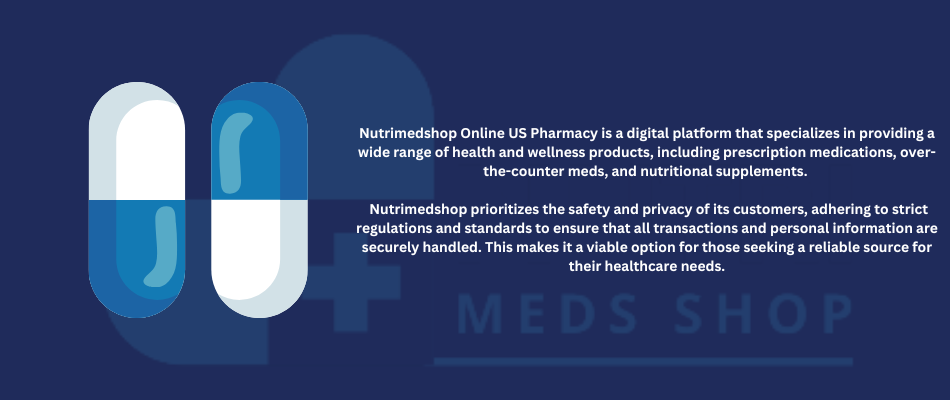- enquiry@nutrimedshop.com
- +1 848-480-6007
All Categories
- Adderall
- Adipex
- Alprazolam
- Ambien
- Ativan
- Carisoprodol
- Clonazepam
- Codeine
- Darvocet
- Demerol
- Diazepam
- Dilaudid
- Fioricet
- Hydrocodone
- Hydromorphone
- Lorazepam
- Lorcet
- Lortab
- Meridia
- Methadone
- Norco
- Opana ER
- Oxycodone
- Oxycontin
- Percocet
- Phentermine
- Roxicodone
- Soma
- Suboxone
- Subutex
- Tramadol
- Valium
- Viagra
- Vicodin
- Xanax
- Klonopin
- Cialis
Percocet Category
Percocet 10/325mg
$460 - $1380
Percocet 2.5/325mg
$460 - $1380
Percocet 5/325mg
$309 - $649
Percocet 7.5/325mg
$329 - $649
Percocet 7.5/500mg
$460 - $1380
Category Description
When it comes to purchasing Percocet online for fast delivery, our top-rated online pharmacy is the ultimate solution. With a reliable and efficient delivery system via FedEx, customers can rest assured that their order will arrive promptly and securely.
What is Percocet?
- Percocet is the brand name for a combination medication containing the opioid oxycodone and the analgesic acetaminophen. It is prescribed to treat moderate to severe pain that cannot be adequately managed with other painkillers.
- Percocet is classified as a Schedule II controlled substance by the Drug Enforcement Administration (DEA) due to its potential for abuse and dependence. The oxycodone component is an opioid agonist that works by binding to opioid receptors in the brain and spinal cord, blocking pain signals. Acetaminophen acts as a pain reliever and fever reducer.
- Percocet comes in tablet form in various strengths, typically ranging from 2.5 mg oxycodone with 325 mg acetaminophen up to 10 mg oxycodone with 650 mg acetaminophen. It is prescribed for short-term use and should not be taken for longer than needed due to the risks. The generic version contains the same active ingredients as the brand name Percocet.
Medical Uses
- Percocet contains a combination of oxycodone and acetaminophen. It is prescribed to treat moderate to severe pain, often after surgery or injury.
- Oxycodone is an opioid pain medication that works by changing how the brain and nervous system respond to pain. Acetaminophen is a less potent pain reliever that increases the effects of oxycodone.
- Together, these two medications provide more powerful pain relief than either drug alone. Percocet helps provide quick and effective pain relief after major surgery or serious injuries. It allows patients to rest and recover more comfortably.
- Doctors may prescribe Percocet for short-term use after surgery, dental work, or accidents that cause severe pain. It provides more potent pain relief than over-the-counter medications like ibuprofen or acetaminophen alone.
- Percocet is usually only prescribed for acute pain on a short-term basis, such as during recovery after surgery. It is not intended for long-term treatment of chronic pain conditions. The risks of dependence and addiction make Percocet unsuitable for long-term use.
Dosages
- Percocet tablets come in various strengths, typically ranging from 2.5 mg/325 mg to 10 mg/325 mg of oxycodone/acetaminophen.
- The typical adult starting dosage for acute pain is one tablet every 6 hours as needed. The maximum daily dose is 6 tablets per day.
- It’s crucial not to exceed 4,000 mg of acetaminophen per day from all sources, including Percocet. Exceeding this dose can lead to severe and potentially fatal liver damage. The liver risks increase when combining Percocet with alcohol or other acetaminophen-containing medications.
- Patients should follow their doctor’s exact dosing instructions. The lowest effective dose should be used, especially in elderly patients and those with kidney or liver problems.
Side Effects
Percocet can cause several side effects, ranging from common to serious.
Common Side Effects
The most common side effects of Percocet include:
- Nausea – Feeling sick to your stomach is a frequent side effect, especially when first starting Percocet. Taking the medication with food can help minimize nausea.
- Drowsiness – Percocet can make you feel tired or sluggish. Until you are certain of how the drug will effect you, do not operate heavy machinery or drive.
- Constipation – Opioid medications like Percocet often cause constipation by slowing digestion. Stay hydrated, eat a high-fiber diet, and ask your doctor about laxatives if needed.
Serious Side Effects
More serious side effects are possible with Percocet and require prompt medical care:
- Slowed breathing – Percocet is a respiratory depressant, meaning it can slow breathing dangerously. Seek emergency help if breathing becomes unusually slow or weak.
- Allergic reaction – Some people may have severe allergic reactions to Percocet with symptoms like rash, itching, swelling, and trouble breathing. Discontinue Percocet and get medical care if this occurs.
- Liver damage – Long-term Percocet use can harm the liver. Stop taking Percocet and contact your doctor if you have symptoms like nausea, fatigue, loss of appetite, or yellowing skin or eyes.
Interactions
Percocet can also potentially interact with a variety of other drugs. Drugs that may interact with Percocet include:
- Antidepressants like fluoxetine, paroxetine, sertraline – Percocet may increase levels of these drugs, increasing side effects.
- Antihistamines like diphenhydramine – Increased risk of sedation.
- Antifungals like ketoconazole – May inhibit metabolism of Percocet.
- HIV medications like ritonavir – May significantly increase levels of Percocet.
- Other opioid medications – High risk of overdose and death when combined.
- Muscle relaxants like cyclobenzaprine or methocarbamol – Increased risk of sedation and respiratory depression.
- Sleep aids like zolpidem – Increased risk of severe sedation.
Precautions
- Percocet should be used with care, as it can cause drowsiness and impair cognitive function. Those taking Percocet should exercise caution when operating vehicles or dangerous machinery until they understand how the medication affects them. It’s best to refrain from these activities when first starting treatment or after a dosage increase.
- Elderly patients may be more sensitive to the effects of Percocet. Lower starting doses are often recommended, and patients should be monitored closely for side effects like confusion, dizziness and respiratory depression.
- Percocet carries risks during pregnancy and is not recommended. It passes into breast milk and can affect a nursing infant. Women who are pregnant or may become pregnant should discuss alternative pain relief options with their doctor. Using Percocet close to delivery can cause withdrawal symptoms in the newborn baby.


